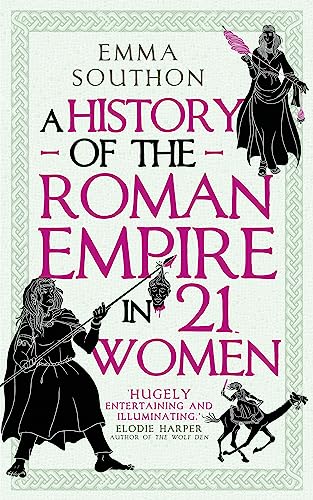A History of the Roman Empire in 21 Women
Histories of the Roman Empire usually focus on its men and their struggles against their neighbours and each other. While men wield weapons and authority and die in dramatic circumstances, women appear from time to time as mothers, victims, bad examples, or scheming poisoners intent on manoeuvring their chosen men into power. Southon’s entertaining account celebrates the women who weren’t necessarily famous, but who were pivotal to the story of how Rome grew, thrived and ultimately fell.
After an inauspicious start (the first Roman husbands found their wives by kidnapping them en masse at a party), we meet Tarpeia, who opened the gates of Rome to the women’s avengers (spoiler alert: it didn’t end well for Tarpeia) and Hersilia, who managed to talk sense into both sides. Southon considers the life of Julia, the obedient daughter whom the Emperor Augustus married off several times for reasons that had nothing to do with her welfare. He then removed her sons and adopted them as his own. In the light of this, the sudden outburst of raging promiscuity for which Julia later became famous makes a lot of sense. Then there’s Julia Felix, the Pompeii businesswoman, and Julia Balbilla the poet, and… yes, there are a lot of Julias, but Southon does a valiant job of distinguishing one from the other. We see the internal struggles of Perpetua the Christian martyr, and meet Zenobia, the widow who became de facto ruler of Syria and Mesopotamia.
Southon neatly summarises contexts for readers who aren’t familiar with the ins and outs of Roman history. For those who want to read the sources, there are plentiful references. This lively and thought-provoking book is a very welcome counterbalance to the many more traditional histories of Rome. Highly recommended.










